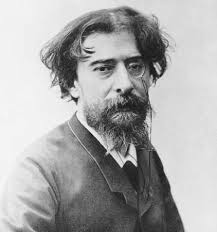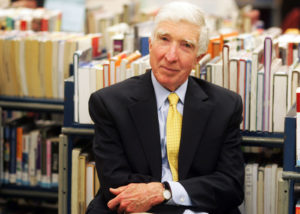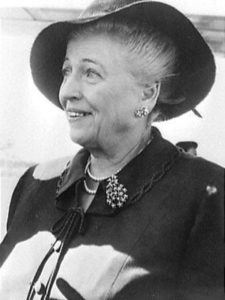We have decided to create the most comprehensive English Summary that will help students with learning and understanding.
On The Face of It Summary in English by Susan Hill
On The Face of It by Susan Hill About the Author
Susan Hill (born on 5 February 1942-) is an English author of fiction and non-fiction works. Her novels include The Woman in Black, The Mist in the Mirror and I’m the King of the Castle. She received the Somerset Maugham Award in 1971 for her novel I’m the King of the Castle. She was appointed Commander of the Order of the British Empire in the 2012 Birthday Honours for her services to literature. She is known to explore the inner fears and loneliness. Her works reflect honest suffering and optimism.
| Author Name | Susan Hill |
| Born | 5 February 1942 (age 78 years), Scarborough, United Kingdom |
| Education | King’s College London, Barr’s Hill School & Community College, Scarborough Convent School |
| Awards | Somerset Maugham Award, Nestle Smarties Book Prize for 6 to 8 years, John Llewellyn Rhys Prize, Costa Novel Award |
| Movies | The Woman in Black, The Woman in Black: Angel of Death, Je Suis le seigneur du chateau |

On The Face of It Introduction to the Chapter
The play is about the friendship between an old man and a young boy who is withdrawn and defiant. Both of them had some physical impairment, but the outlook of each of them towards life in general and people in particular was very different. The old man had a positive outlook towards life, whereas the young boy with the scarred face had become withdrawn and pessimistic.
On The Face of It Theme
The play, “On the Face of It” brings out the idea that the people who have any handicap/ physical impairment of some kind, generally suffer from a sense of loneliness and mental pain. It also talks about how appearances are deceptive and most often, we go on dealing with impressions and prejudices about others without caring to know about them actually.
On The Face of It Summary in English
The play entitled, “On the Face of It” written by Susan Hill deals with the issue of the disabled people. It does not deal with actual pain or inconvenience due to a physical impairment which distresses a disabled person. It rather deals with the behaviour of the people all around him. People discard the disabled person as a useless limb and refuse to accept him as a part and parcel of society. It makes him feel alienated from the human society and he wants to live in seclusion.
The play has two disabled persons, Derry, a young lad of fourteen who bears a burnt face, and Mr Lamb, an old man with a tin leg. Derry is quite withdrawn and defiant. He, by chance meets Mr Lamb in his garden. The old man devises ways and means to overcome his feelings
of isolation and disappointment. He even helps the boy to come out of his seclusion and infuses in him the courage and determination to live on successfully in this world without bothering about what others say or feel about him.
On The Face of It Main Characters in the Chapter
Derry
Withdrawn and defiant; bitter towards the world; lonely and pessimistic; cares too much about his disability and hates it when people stare or pity him.
Mr Lamb
Optimistic; lonely but happy; does not care too much about his disability and has learnt to accept it.
On The Face of It Summary Questions and Answers
Question 1.
How does Mr Lamb keep himself busy when it is a bit cool?
Answer:
Mr Lamb collects crab apples and makes jelly out of them, when it is cooler. He leaves his gates open to welcome whoever wishes to come into the garden.
Question 2.
Why does Derry tell Mr Lamb that he is afraid of seeing himself in the mirror in the story, ‘On the Face of It’?
Answer:
Derry’s face had become scarred due to acid burns. This terrified him and brought in bad memories of the incident. In order to avoid them, he avoided seeing himself in the mirror.
Question 3.
Mr Lamb’s advice to Derry was the product of his goodness of heart or to befriend him to overcome his loneliness. Give reason.
Answer:
Mr Lamb genuinely liked Derry and wanted him to overcome his inhibitions towards life. He did not want the boy to suffer and have a poor self-esteem because he had a burnt face. He gave his example only for him to understand what can be done to overcome loneliness and to make him understand that a disability should not stop one from enjoying life.
Question 4.
People are insensitive to those who have disabilities. Give instances from the story, ‘On the Face of It’.
Answer:
People generally pity the handicapped or react with disgust when they see them. For instance, people would stare at the burnt face of Derry and comment on it. He even heard two women commenting, looking at his face that only a mother could love a person with such a face. Even his own family was worried about his future. Similarly, Mr Lamb was also stared at by people, and children even called him Lamey-Lamb.
Question 5.
How does Mr Lamb try to remove the baseless fears of Derry?
Answer:
Mr Lamb gave confidence and courage to Derry. He suggested that Derry should get over his physical impairment instead of brooding over his burnt face. He told Derry that he still has two hands, legs, eyes, a tongue and a brain, and if he puts them to right use by setting his mind to it, he can get on better than all the rest.
Question 6.
What did Derry’s mother think of Mr Lamb?
Answer:
Derry’s mother did not have a good impression of Mr Lamb. She thought he was not a good man. She did not want Derry to associate with him in any way.
Question 7.
What consolation did people give when they saw his acid burnt face?
Answer:
Derry’s face was burnt by acid on one side. When people looked at his face, they drew back in horror. They pretended to show sympathy as if he was an object.
Question 8.
Mr Lamb told Derry the story of a man who hid himself in his room. Why did the man do so and with what result?
Answer:
The man was afraid of everything. He felt that he would die if he went out and so he hid himself in a room. In the end, a picture fell off the wall on his head and killed him.
Question 9.
Why does Mr Lamb leave his gate always open?
Answer:
Mr Lamb leaves his gate always open to welcome children. He did not have his own children. He has an apple orchard. He offered them apples and its jelly.
Question 10.
What peculiar things does Derry notice about the old man, Lamb?
Answer:
Unlike the other people, who were horrified on looking at Derry, Mr Lamb did not show any dislike or horror at the way Derry looked. This surprised him. He also found it strange that even though the man himself was handicapped, he lived happily. He had a zest for life and encouraged him in ways no one had. He made him aware of his strengths and the importance of not pitying oneself.



